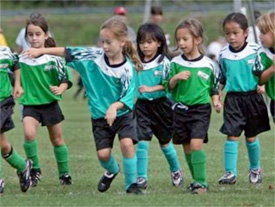- Physical Medicine Home
- Products
- Programs
- Applications
- Find a Clinic
- Blog
- Events
- Education & Training
- In The News
- Press Releases
Physical Medicine Blog
< back to resultsYouth sports concussion law takes effect New Years Day
January 1, 2014
 (WBIR) A state law aimed at reducing concussions in youth sports and increasing awareness about traumatic brain injury took effect Wednesday, Jan. 1.
(WBIR) A state law aimed at reducing concussions in youth sports and increasing awareness about traumatic brain injury took effect Wednesday, Jan. 1.
Under the law, coaches, athletes and parents must learn about the dangers of concussions before competing. Secondly, if a young athlete may have suffered a concussion they can't play until being cleared by a medical professional. Students will also be required to leave a sporting event if they've been showing concussion symptoms like headaches, dilated eyes or vomiting. The law also require coaches, athletes and their parents to sign documents, proving they understand the risks of concussions before a young athlete can compete.
The new law affects public and private schools, along with recreational leagues for children under the age of 18 that require a fee.
Tennessee became the 44th state to pass a sports concussion law in April 2013.
The Tennessee Health Department said a concussion is a type of traumatic brain injury that changes the way the brain normally works. Most people don't lose consciousness when they have a concussion.
"If you ask athletes why they were concussed after being concussed, one of the reasons is they didn't know it was a concussion, so they didn't know they shouldn't go back in a game," said Dr. Andrew Gregory with Vanderbilt University Sports Medicine.
Experts said athletes who have had concussions increase their risks for having another one.
Concussions can lead to dangerous side effects. The National Football League has particularly come under fire after former players committed suicide after the living for years with the side effects. There's also a big concern that young athletes return to play too quickly after suffering a concussion. Recovery for concussions is typically longer for young children and teens than adults.
In October, The Tennessean published a special report on youth concussions, detailing the problem in Tennessee. The Tennessean reports the number of youth concussions treated at hospitals within the state increased 74 percent from 480 in 2007 to 834 in 2010.
Contributing: The Tennessean
Category:
Physical Medicine




